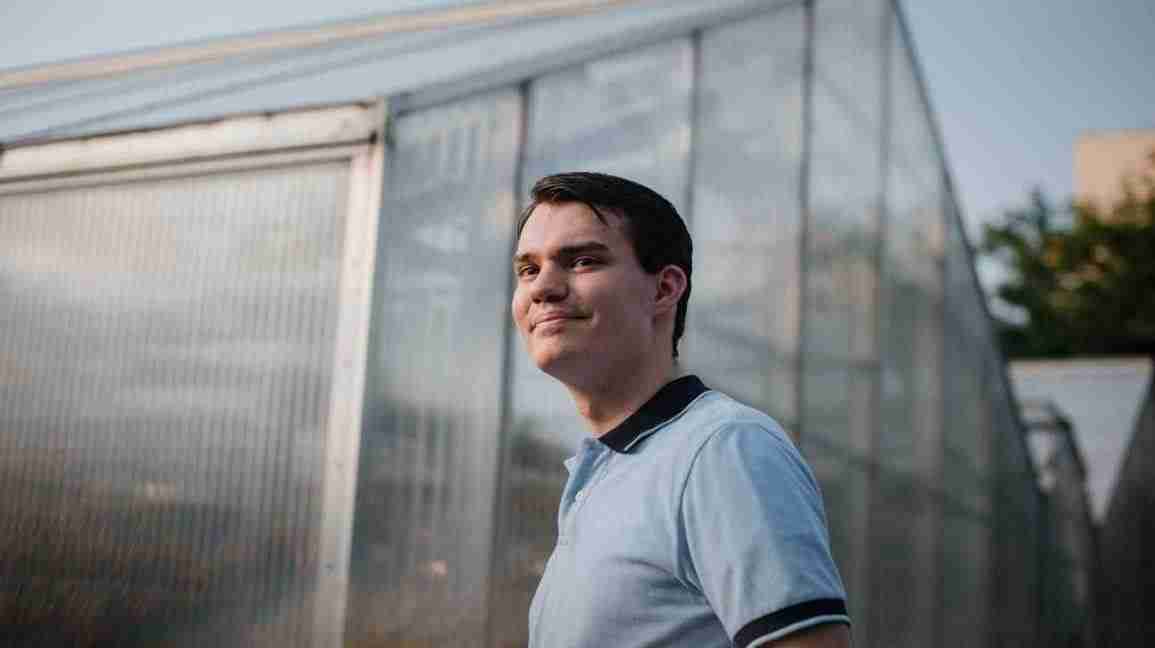
Thomas Gabel’s passion for agriculture runs deep in his blood.
He was born and raised on his family’s dairy farm in the tiny Pennsylvania town of Newport (population 1,574), where he took pride in tending the vegetable garden.
As he reached adolescence, he realized that farming wasn’t his future. He became more interested in teaching others about agriculture and the role farmers play in solving hunger issues.
Gabel is starting his junior year at Pennsylvania State University where he majors in agricultural education. But this food security advocate isn’t waiting until he graduates to take on leadership roles in his field.
The 21 year old has already served as his state’s vice president for the National FFA (Future Farmers of America) Organization and worked on food security issues through the Global Teach Ag Network.
We asked the aspiring agricultural educator about his studies, goals, and obstacles. Here’s what he had to say.
This interview has been edited for brevity, length, and clarity.
What prompted you to get into your field of study?
In high school I became involved in an intracurricular club known as FFA. FFA is the leadership component of the agricultural education curriculum and develops student “potential for premier leadership, personal growth, and career success.”
Through this organization, I discovered I could share my passion for agriculture through education. I also realized educators can make a positive impact on youth every day.
I wish to follow in the footsteps of the influential educators I’ve had and empower the next generation of students.
Please tell us about the work you’ve already done, as well as your goals for the future.
My involvement in agricultural education and food security work started with volunteer projects through FFA and 4-H (America’s largest youth development organization).
Those experiences helped me in my role as the 2017–2018 Pennsylvania FFA State Vice President, an elected position that requires a one-year deferral from college in order to serve over 13,000 Pennsylvania FFA members.
This year of service involved visits to school districts across the state, planning and implementing state conferences and conventions, and meeting with industry, business, and political representatives. Through those conversations, I called upon my own experiences to spread awareness of the food insecurity and agricultural illiteracy issues that our country faces.
At Penn State, most of my food security work is through the Global Teach Ag Network. Every year in late January or early February, Global Teach Ag hosts the Global Learning in Agriculture Conference (GLAG), an online professional development opportunity that hosts over 400 educators from 6 different continents.
Two years ago, I was tasked with creating a supplemental program that educators could use in their classrooms. That resulted in GLAGjr, which featured online global agriculture-related modules, including one specific to the Sustainable Development Goals and food security issues.
GLAGjr also has a grant component, which has funded six student-led projects ranging from hunger banquets and sustainable food education to school garden food distribution.
Another fun project has been my involvement with the #TeachAgTalks podcast. In 2019, I sat down with Roger Thurow, senior fellow on global agriculture and food policy for the Chicago Council on Global Affairs, and discussed his books on food insecurity.
This conversation became two podcast episodes, which were shared with agricultural educators across Pennsylvania as a resource for their own food security lessons.
What obstacles do you envision encountering as you move toward your goals?
I’m afraid of future career burnout. As an agriculture teacher, your role extends far beyond the classroom.
We follow the three-circle model of agricultural education, which includes classroom instruction, leadership experiences, and experiential learning projects.
Even though it can be a lot to manage, it creates more opportunities for student growth and development.
For example, a student can be inspired by a lesson on food insecurity problems in class and translate that experience into a hunger banquet through their FFA chapter and volunteer work at the local food bank.
As I commit myself to a career as an agricultural educator and food security advocate, I am excited for the opportunities to positively influence others, but I also anticipate times of overwhelming schedules and responsibilities.
What message would you like to give to people experiencing food insecurity?
I want you to first know that I’m sorry for what you’re experiencing. It’s tough and can seem like an impossible barrier to break through.
However, I would encourage you to be open and vulnerable with others. Individuals are amazingly empathetic and can either help you or point you in the direction of a local group or organization who will stand side by side with you.
Food insecurity is daunting, draining, and horrible, but as more people become aware of the struggle, more people are becoming able and willing to help.
Hang in there and stay strong. Help is on the way.
Since food has served as a major inspiration for your work and ambitions, can you please tell us about your favorite food memory?
My favorite connection to food stems from my involvement on the family farm, more specifically our garden.
Starting when I was 11 or 12, I oversaw certain parts of the garden, typically the tomatoes, watermelons, or peppers, and took great pride in my work. It was exciting for me to literally witness the fruit of my labor.
Why are issues related to food, nutrition, and hunger important to you?
These issues are of personal importance to me because of my family’s involvement in food production, and the fact that I participated in the free and reduced school lunch program.
Food insecurity, hunger, and nutritional issues are everywhere — but aren’t often in the public eye. People are struggling in silence and in the shadows.
As a future educator, I plan on teaching individuals about our food system and nutrition, while spreading awareness on important issues such as food insecurity.
Food is a basic human need, and if I can play a part in helping individuals have meals on their dinner table, then I’m doing my part in making the world a better place.
Joni Sweet is a freelance writer who specializes in travel, health, and wellness. Her work has been published by National Geographic, Forbes, the Christian Science Monitor, Lonely Planet, Prevention, HealthyWay, Thrillist, and more. Keep up with her on Instagram and check out her portfolio.



